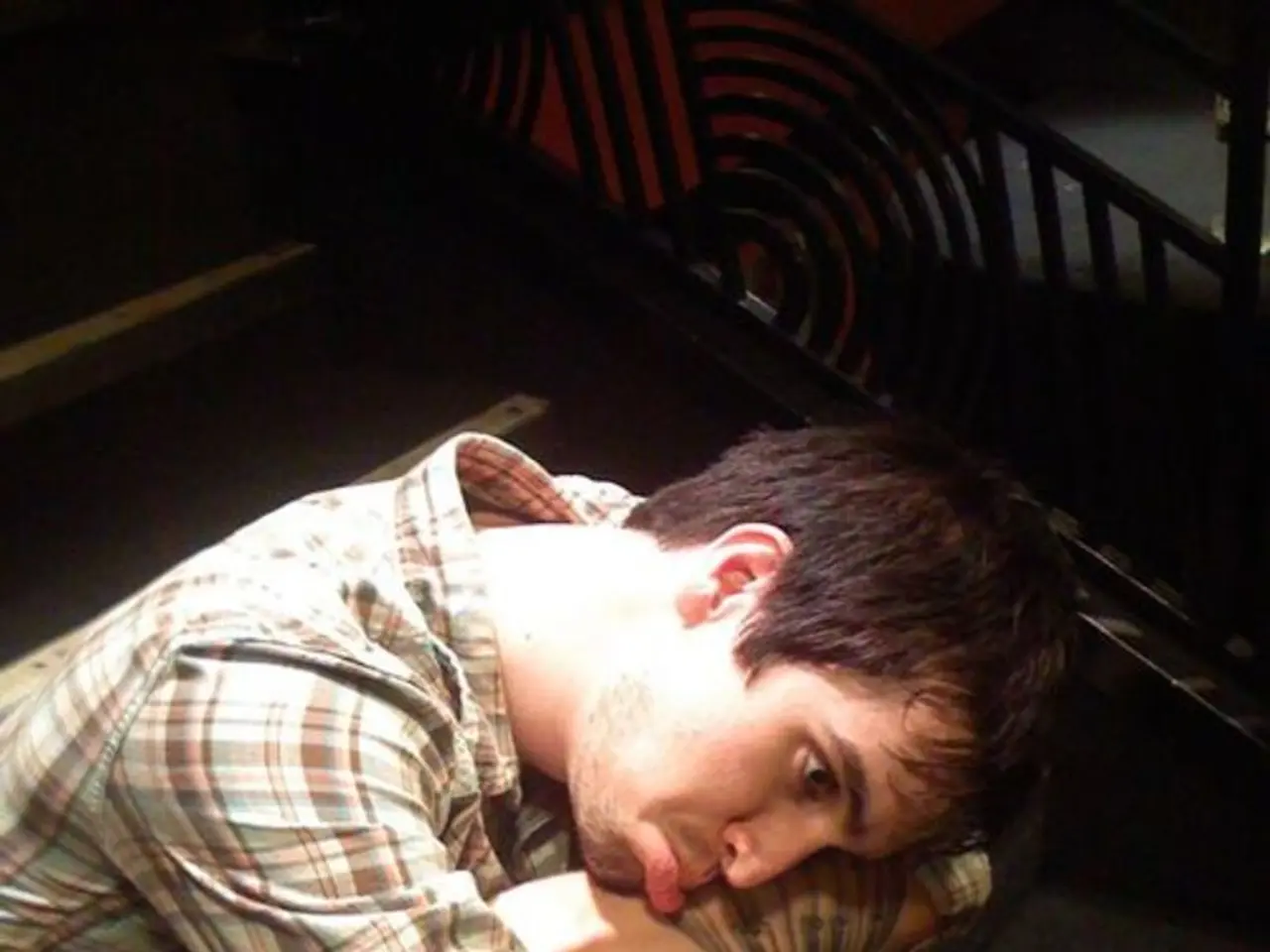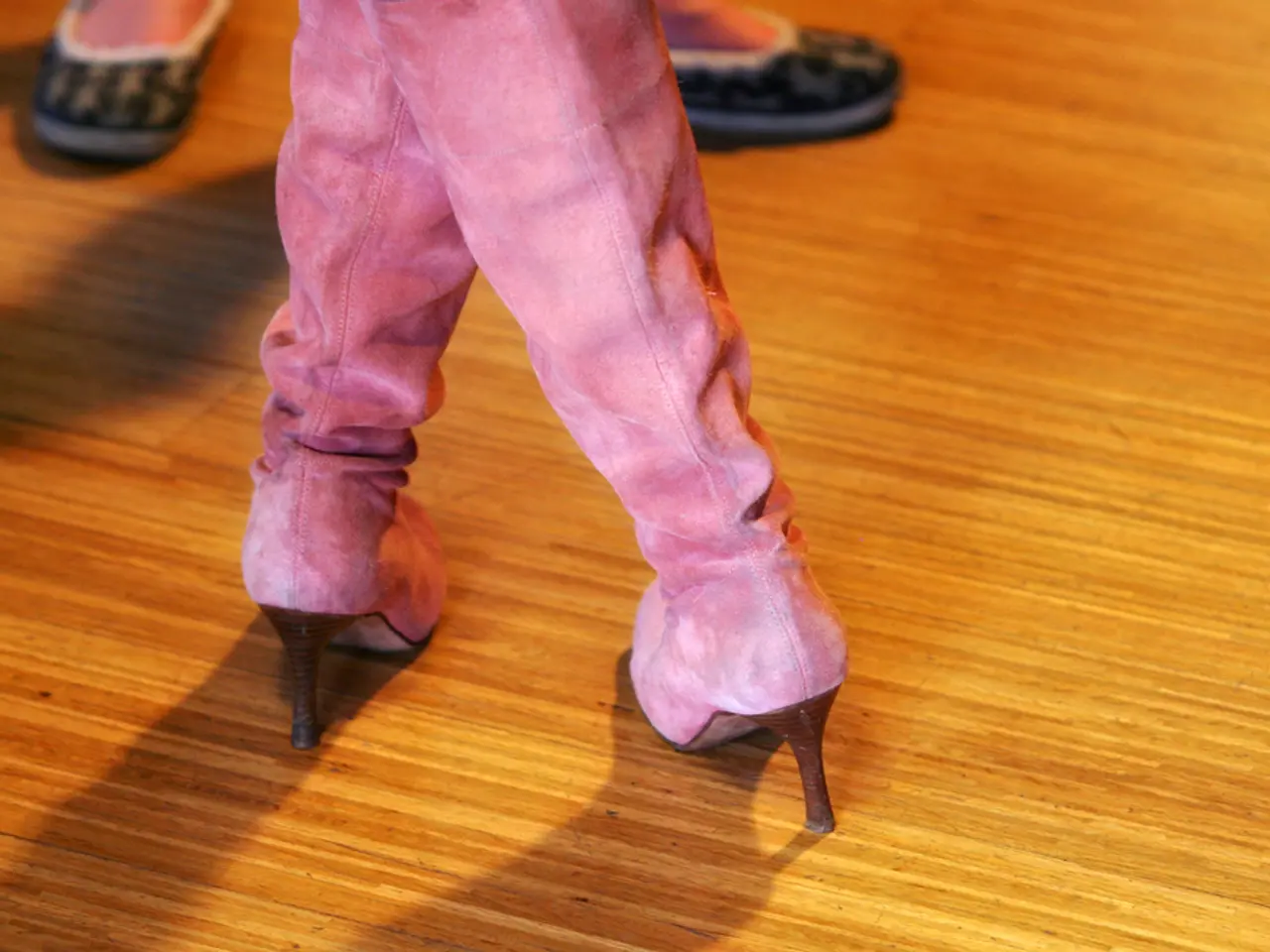Struggles with Emotional Overreactivity and Impulsivity in Attention Deficit Hyperactivity Disorder (ADHD) Recalled as Rejection Sensitive Dysphoria (RSD)
The relationship between Rejection Sensitive Dysphoria (RSD) and Attention Deficit Hyperactivity Disorder (ADHD) is significant, with research indicating that up to 98% of adults with ADHD experience RSD[1]. This emotional sensitivity and intense pain triggered by perceived or actual rejection, criticism, or failure to meet expectations is a common feature among individuals with ADHD.
Rejection Sensitive Dysphoria (RSD) involves overwhelming emotional responses to real or perceived rejection or criticism. For individuals with ADHD, small criticisms or ambiguous social cues may feel like full-blown rejection, leading to intense feelings of hurt or panic[3]. ADHD symptoms such as difficulty regulating emotions and shifting focus can worsen the impact of RSD, causing people to hyperfixate on perceived rejection and struggle to move on[3].
Common signs of RSD in individuals with ADHD include big emotional reactions to minor comments or social slights, emotional shutdowns or outbursts, withdrawal, edginess, or feeling constantly on edge, especially in adolescents with ADHD[2]. Difficulty interpreting non-verbal cues accurately can lead to misunderstanding social interactions as rejection or judgment[1]. Hyperfixation on negative thoughts about relationships or self-worth, such as repeatedly replaying situations in their mind and fearing social loss, is also a common sign[3]. Over-apologizing or over-explaining to repair perceived social damage is another characteristic of RSD[3].
The consequences of RSD in ADHD can be far-reaching. Increased difficulty with focus and productivity due to preoccupation with feelings of rejection or criticism can negatively impact personal and professional life[1]. Strained personal relationships caused by misinterpretation of social cues and overwhelming emotional responses can lead to isolation and loneliness[1]. Feelings of shame, worthlessness, or anger that can be disproportionate to the triggering event can impact mental health and self-esteem[4]. Potential for emotional dysregulation to affect workplace performance and social connections makes support and understanding critical for neurodivergent individuals in professional settings[4].
To manage RSD, Dr. Sara Kelly, an ADHD coach, suggests becoming a detective to one's internal narrative to challenge thoughts related to RSD[2]. Seeking support from a trusted, logical friend can help ground a person when they are feeling overwhelmed by perceived or real rejection or criticism. Mindful breathing, practicing self-compassion, and waiting at least 24 hours before responding to perceived or actual rejection can also help manage RSD[2][4].
The negative self-perception associated with RSD can severely damage self-esteem and self-worth, leading to feelings of inadequacy, shame, and worthlessness. Elements of RSD such as catastrophizing relate closely to anxiety disorders, withdrawal from social situations is a feature of social anxiety, and feelings of guilt, shame, and low self-esteem are common in those with depression. Recognizing RSD and learning strategies to manage its effects can help individuals with ADHD better navigate relationships and daily life[2][4].
[1] Barkley, R. A. (2015). ADHD and the nature of self: Understanding and improving the emotional lives of kids with ADHD. New York, NY: Guilford Press. [2] Kelly, S. (2020). The ADHD effect on work: Understanding and improving chip performance. New York, NY: New Harbinger Publications. [3] Dodson, W. (2014). The ADHD brain: Understanding and treating attention deficit disorder from the inside out. New York, NY: Penguin. [4] Hallowell, E. M., & Ratey, J. J. (2005). Driven to distraction at work: How to focus, listen, and remember when ADHD gets in the way. New York, NY: Penguin.
- Research indicates that up to 98% of adults with Attention Deficit Hyperactivity Disorder (ADHD) experience Rejection Sensitive Dysphoria (RSD), a condition characterized by overwhelming emotional responses to perceived or real rejection or criticism.
- RSD involves emotional sensitivity and intense pain triggered by such experiences, and this emotional turmoil can worsen the symptoms of ADHD, such as difficulty regulating emotions and shifting focus.
- Common signs of RSD in individuals with ADHD include big emotional reactions to minor comments or social slights, emotional shutdowns or outbursts, withdrawal, edginess, or feeling constantly on edge.
- Difficulty interpreting non-verbal cues accurately can lead to misunderstanding social interactions as rejection or judgment, causing more emotional distress.
- Hyperfixation on negative thoughts about relationships or self-worth, such as repeatedly replaying situations in their mind and fearing social loss, is also a common sign of RSD.
- Over-apologizing or over-explaining to repair perceived social damage is another characteristic of RSD, which can lead to strained personal relationships.
- The consequences of RSD in ADHD can be far-reaching, affecting focus, productivity, mental health, self-esteem, and potentially impacting workplace performance and social connections.
- To manage RSD, strategies such as becoming a detective to one's internal narrative, seeking support from a trusted friend, practicing mindful breathing, and self-compassion can help individuals challenge thoughts related to RSD and manage their emotions more effectively.
- The negative self-perception associated with RSD can severely damage self-esteem and self-worth, leading to feelings of inadequacy, shame, and worthlessness.
- Elements of RSD such as catastrophizing relate closely to anxiety disorders, withdrawal from social situations is a feature of social anxiety, and feelings of guilt, shame, and low self-esteem are common in those with depression.
- Recognizing RSD and learning strategies to manage its effects can help individuals with ADHD better navigate relationships and daily life, improving their mental health and overall well-being.
- Understanding the relationship between RSD and ADHD, and seeking appropriate treatment, can contribute significantly to the mental health and health-and-wellness of individuals with ADHD, promoting a more fulfilling life.




